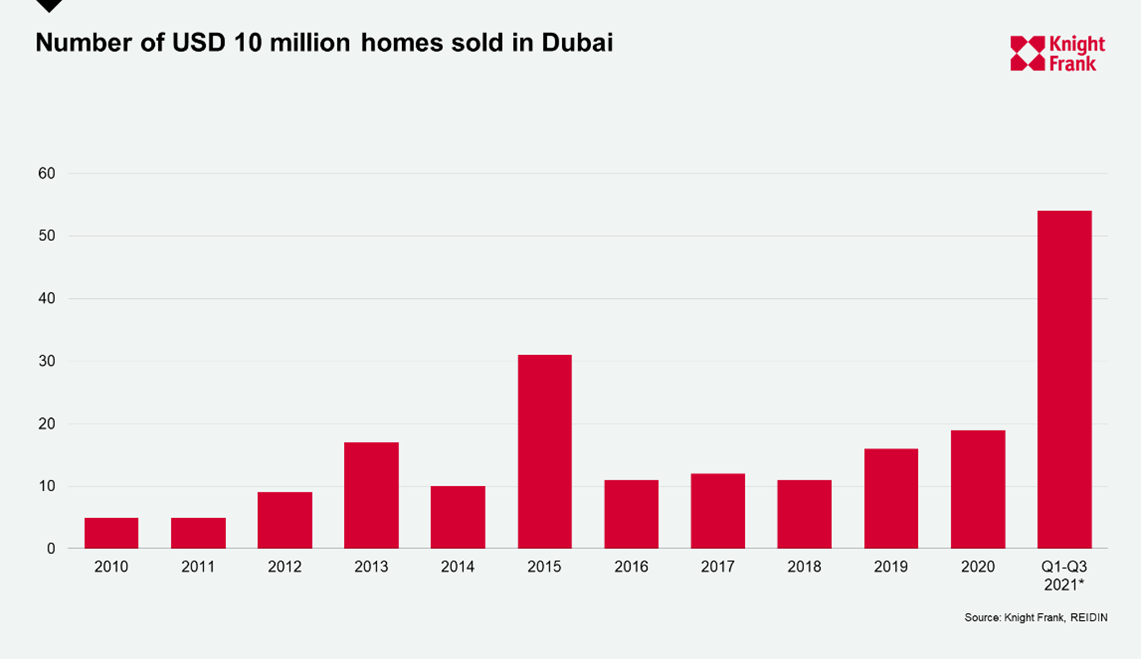Ditching the word "transitory", the reverse mortgage war and the West End's economic roller-coaster
Making sense of the latest trends in property and economics from around the globe.
3 minutes to read
The latest edition of our House View has arrived. Our concise but comprehensive property market outlook covers all the major real estate sectors in the UK and globally. Find out why the path of the global recovery looks increasingly like a Nike "swoosh", what global CEOs are thinking about the return to the office and why it is still easier to find a buyer than somewhere to buy in the UK residential market. Click here to read it.
UK mortgages
Signals from the Bank of England that interest rates will soon rise has initiated a clamour to remortgage. Knight Frank Finance data covered in the Telegraph shows remortgaging activity up 85% during October and November compared to the same period a year earlier.
The scale of activity has effectively put the mortgage price war into reverse. No lender wants to be the cheapest on the high street for fear of being completely swamped with applications so rates are moving up steadily. Hina Bhudia tells the paper:
"We are seeing repeated small, but notable, increases in rates of usually 0.1 or 0.25 percentage points each time.
"This may not seem like much, but on a five-year fixed rate of 1pc on a £500,000 loan, an increase of 0.1 percentage points will equate to an additional £2,500 paid in interest over the mortgage term. So remortgaging just days earlier can save thousands."
The West End
Shaftesbury's full year results, published yesterday, revealed that weekend footfall is back at 2019 levels, while weekday activity is running at about 80%.
The company, which owns a 16-acre portfolio in the heart of the West End, said April saw the beginning of a sustained recovery in leasing and occupancy is now close to pre-pandemic levels. The portfolio was valued at £3 billion at the year end. Here's chief executive Brian Bickell:
"With the long and often dispiriting days of last winter behind us, and the streets now once again buzzing with life, the year can only be described as an economic and emotional roller-coaster."
The UAE
The UAE tops Bloomberg's Covid Resilience Ranking. Daily cases have stayed below a hundred since mid-October and it’s one of the most vaccinated places in the world with over 200 doses per 100 people.
The robust response is being felt in the property market. Residential property values in the UAE’s two largest cities, Dubai and Abu Dhabi, are expanding at their fastest pace since 2015, according to data from Faisal Durrani.
The number of $10m plus homes sold in Dubai currently stands at 54, beating the previous record of 31 set in 2015.

Transitory inflation
Consumer price inflation in the eurozone hit 4.9% in November, driven by soaring energy prices. The data heaps pressure on European Central Bank president Christine Lagarde, who like her central banking counterparts in the UK and US has maintained that prevailing levels of inflation are transitory.
The data has been chipping away at that narrative for several months. BoE monetary policy committee member Catherine Mann said yesterday that Omicron could push inflation higher for longer if it prevents consumers switching their spending from goods to services and prolongs disruption to global supply chains.
With inflation currently running at double the Fed's target, chair Jerome Powell yesterday signalled his support for a quicker withdrawal of the US central bank's massive bond buying programme. After spending months arguing that the pandemic surge in inflation was largely due to transitory forces, he told Congress on Tuesday that it’s “probably a good time to retire that word.”
In other news...
ESG and shopping: exploring retail’s greenest assets. Elsewhere - the Bank of England is concerned that the cladding crisis poses a risk to UK financial stability (FT), and finally, steel's path to going green will cost the industry $278 billion. (Bloomberg).
Photo by Nick Fewings on Unsplash